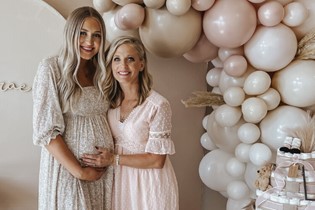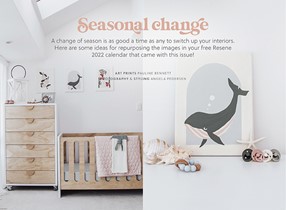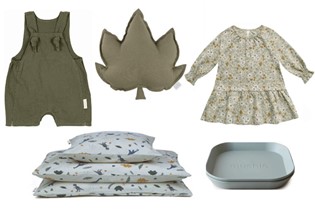Advice: when is the right time to drop overnight feeds?

When is the right time to drop overnight feeds and how will it affect sleep? Dorothy Waide shares her advice for each stage of your baby's first year.
No matter what age your baby, toddler, or child is, it's important to understand that their brain needs to wake them overnight, this is all part of their development. However, there will come a time when they are developmentally ready to go back to sleep without any feeding and/or intervention from their parents. The age for this varies widely and depends on a number of factors.
It's often talked about that breastfed babies need more food overnight than a bottle-fed baby, but in my experience I’ve found there is very little difference. The biggest difference between giving breast milk or formula is that formula is consistently the same 24/7, whereas breast milk changes during a 24 hour period. Having a good diet, drinking lots of water and taking appropriate supplements will help breastfeeding mothers as sleep deprivation is tough on your body.
Usually from around 16 weeks onwards you are getting larger stretches of night sleep (or for some lucky ones your baby might even be sleeping overnight). It’s also worth noting that 'sleeping overnight' can mean different things to different people – it’s so important to try not to compare. I'm a great believer in working on resettling techniques to encourage independent sleeping, and giving your baby the tools to self settle (and boy, this can be hard work) in those first 16 weeks. Then you are on your way to sleeping longer stretches overnight.
I have covered off self-soothing and resettling in many articles in the past (and I’m sure many more to come) and it does depend on how you wish to parent, there's no one-size-fits-all. In my opinion, in those early weeks you are are giving your baby little baby boundaries and as they grow, you then give them toddler boundaries, and so on. In my experience, self settling and resettling are not just about sleep either – emotional hardwiring can also have a lot to do with wakefulness. I always like to remind people that this is not about leaving your baby to cry - it is about listening to them. Crying is communication, we need to STOP, LISTEN and ACT when babies are trying to tell us something. Now that we've covered that off, let’s look at age groups and how many feeds they generally need overnight...
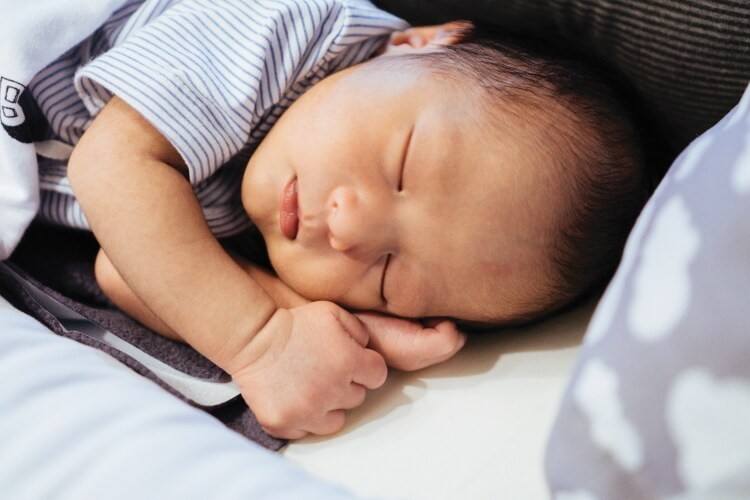
NEWBORN
Newborn babies need to feed approximately every 90 minutes to 4 hours during the day and overnight some babies will feed every 90 minutes, while others will sleep longer stretches and some even through the night. If your newborn baby is having wet nappies and is happy and contented, plus has regained their birth weight, then my motto is 'never wake a sleeping baby overnight'. Sometimes your baby is just waking or stirring for reassurance so always try and do a small resettle first before feeding and if you need to feed, make sure it's a full feed (this is important as a lot parents do a quick feed and then wonder why they wake so much). I also encourage feeding with a light on as this helps you stay awake. Bedsharing and co-sleeping can be done safely at this age so do what you feel is right for you and your baby. There is lots of information available now about safe co-sleeping, please do your research and make sure you are well prepared beforehand.
16 WEEKS
Ideally your baby is slowly pushing out those night feeds. They may have one feed before midnight and either one or two feeds from midnight to 6am. If your baby is happy and content, has wet nappies and is maintaining a good weight, at this age I would encourage parents to try for a resettle for any wakes before midnight. This will help them stretch out their sleep in the first part of the night, which is when they have their most restorative rest. Some parents are encouraged to do a dream feed but in many cases it is a false economy and in my experience once your baby is sleeping to midnight or past midnight, life becomes a little easier. When your baby wakes overnight at this age – stop, think and act. Unless they are calling you like 'MUMMY COME NOW' (and you will get to know what this sounds like), they might surprise you and go back to sleep on their own. Although it’s hard to listen to them grizzle and work things out on their own, it will likely pay off for everyone in the long run. If you do need to intervene, try a hands-on resettling technique first before feeding. Remember you cannot resettle a hungry baby, if they do settle, they were not after food and that will give you some good clues on what to do going forward.
16 weeks is also when they’re going through a major progressive milestone where they change from baby sleeping to adult sleeping patterns. If they don’t have the tools on-board to self settle, you may find they start waking more overnight. This isn’t a regression – it's your baby meeting their developmental milestones, it’s a great thing!
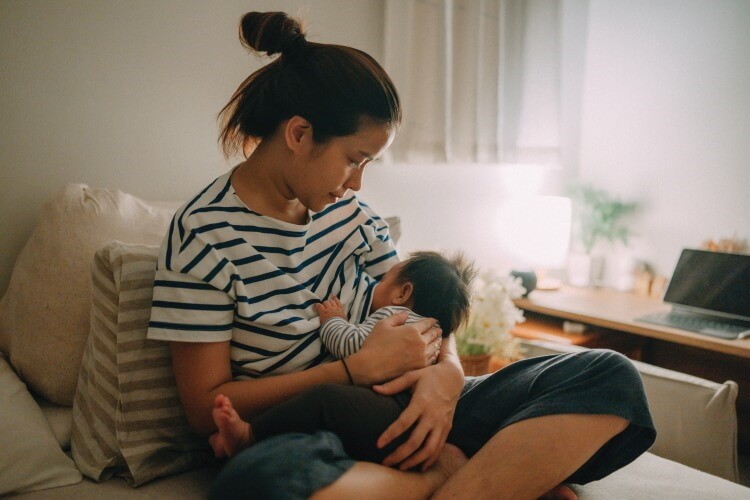
6 MONTHS
Most babies have started solids or are about to. A well fed baby at this age should be sleeping longer stretches at night by now. Some babies will still be needing one night feed around the 2am mark, but again, try for a resettle before feeding. When working with parents with babies 6 months or older, I tend to encourage safe bed-sharing rather than feeding. Sometimes our babies just need that extra comfort. If you are still breastfeeding overnight I do encourage sitting up for feeding and lying down for sleeping. Sleep is important for the whole family, we are all better humans with sleep under our belts.
A QUICK WORD ON DAY NAPS
If you are working towards encouraging your baby to sleep overnight, then encourage your baby to resettle in their naps if they wake after one sleep cycle (30 – 45 mins). Sleep breeds sleep, so if you can teach them to self settle and resettle during their naps times, their overnight sleep will benefit too.
10 MONTHS
This age group mostly do not need feeding overnight. I am a Karitane Mothercraft Nurse, and in my work we believe that sleep is so so important for everyone in the family. Again I would encourage safe bed-sharing at this age instead of overnight feeding. For some older babies they will feed all night and not be good eaters during the day – we need to try and flip this so that they are having good meals and liquid during the day which will sustain them during the night.
Another important consideration is teeth. Once your toddler has all their teeth, they should be being brushed after feeds – which obviously doesn’t happen if they’re being fed to sleep or are feeding overnight. I would suggest to use your body as your toddler’s comfort overnight, rather than your breasts.
At some stage you will want your body back, this may not be until they're three or four, or until you have another newborn to care for and feed around the clock!
There are a number of reasons why we feed our babies or toddlers overnight even if they don’t technically need it. These could include keeping the home safe and quiet so as not to wake others, or to keep your baby or toddler happy and content, which is of course admirable.
Believe in yourself and know that how you choose to parent is awesome. There is no right or wrong way, but I do believe there are easier and harder ways. Professionals can give you the tools and support, but at the end of the day you are your own baby’s whisperer and expert.
Dorothy Waide is a Karitane Mothercraft Nurse with over three decades of experience. She's also the OHbaby! expert sleep advisor and resident baby whisperer. Dorothy is the author of two popular parenting books, You Simply Can’t Spoil A Newborn and Simply Parenting: From 12 Weeks to 12 Months. Visit Dorothy at babyhelp.co.nz.

AS FEATURED IN ISSUE 56 OF OHbaby! MAGAZINE. CHECK OUT OTHER ARTICLES IN THIS ISSUE BELOW



